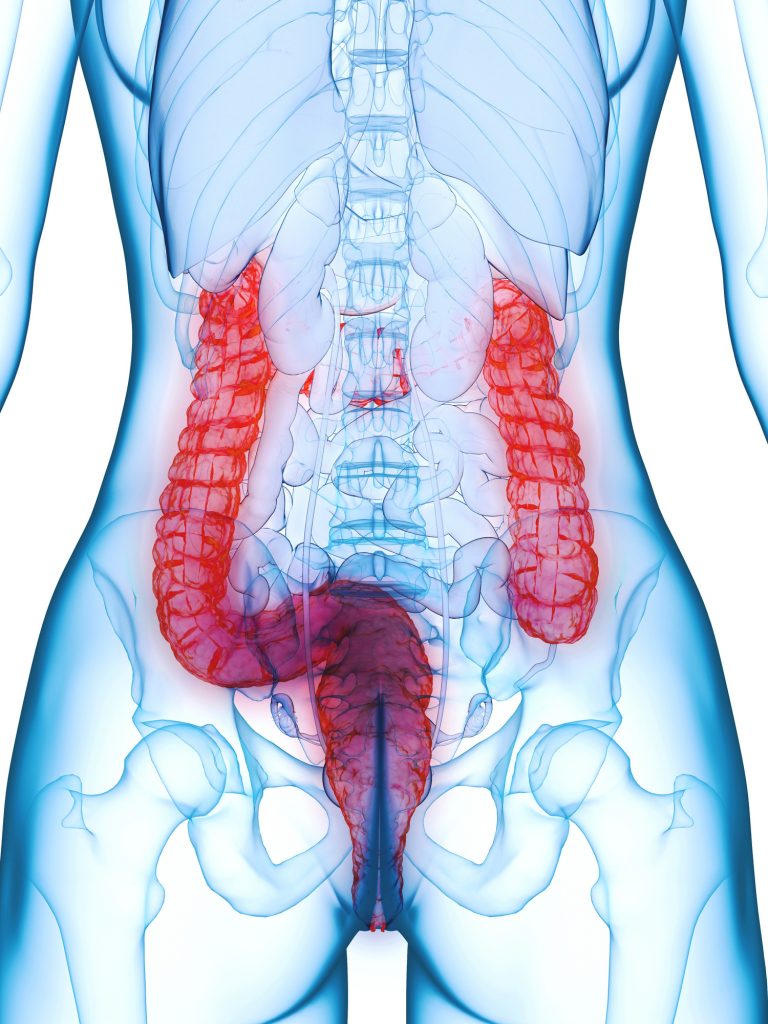
Mount Sinai research shows how known genetic mutations can cause Crohn’s disease and also highlights a possible new treatment for patients who don’t respond to standard biologic therapy.
It has been known for some time that mutations in the NOD2 gene, which plays an important role in recognizing bacteria and stimulating the immune system, can increase a person’s risk for Crohn’s disease – one of the more common forms of inflammatory bowel disease (IBD).
However, the reasons for this link and also why some patients do not respond to anti-inflammatory tumor necrosis factor (TNF) blockers, a standard treatment for these patients, was less clear.
Crohn’s disease and ulcerative colitis are collectively known as IBD and affect more than 3 million people in the U.S. alone. While ulcerative colitis only affects the large intestine, Crohn’s inflammatory flare ups can occur anywhere along the gastrointestinal tract.
The exact cause of Crohn’s disease is not known, but the environment, bacteria and dysregulation in the immune system are all thought to play a role. Genetics also has a strong impact and around half of all cases are thought to have a genetic link. In addition to NOD2, a large number of other genes have also been implicated in risk for Crohn’s.
Judy Cho, M.D., Dean of Translational Genetics and Director of The Charles Bronfman Institute for Personalized Medicine at Mount Sinai, was behind the original research highlighting the risks associated with carriage of certain NOD2 variants and also led the current study.
As reported in the journal Nature, Cho and colleagues investigated how mutations in NOD2 are expressed in Crohn’s patients who are carriers and also in a zebrafish model.
Common symptoms in Crohn’s patients involve constriction and narrowing of different sections along the gastrointestinal tract. Complications involving macrophage cells, which detect pathogenic microbes, and fibroblasts, which aid healing, are common in these patients.
The researchers found that mutations causing loss of NOD2 activity caused dysregulation of fibroblast and macrophage cells. These cells had higher than normal STAT3 regulation, as well as high levels of the common cytokine receptor subunit gp130.
Based on this, the team tested whether suppressing gp130 expression using bazedoxifene could reduce the excessive activation of the fibroblast and macrophage cells associated with NOD2 mutations in cell lines and zebrafish larvae. Bazedoxifene is a gp130 inhibitor that has been used in experimentally to treat colorectal and pancreatic cancers in preclinical studies.
Cho and team found that gp130 inhibition appeared to reduce the inflammatory activity caused by the NOD2 variants and suggest further research to develop this target further as a possible new treatment for Crohn’s disease patients who are non-responsive to anti-TNF drugs.
“Our work defines a completely new mechanism whereby NOD2 mutations confer risk, namely through altered differentiation of newly recruited blood monocytes over time,” says Cho.
“It sharpens current research efforts involved in serial tissue and blood analyses to define how non-response or loss-of-response to anti-TNF therapies may be improved.”













